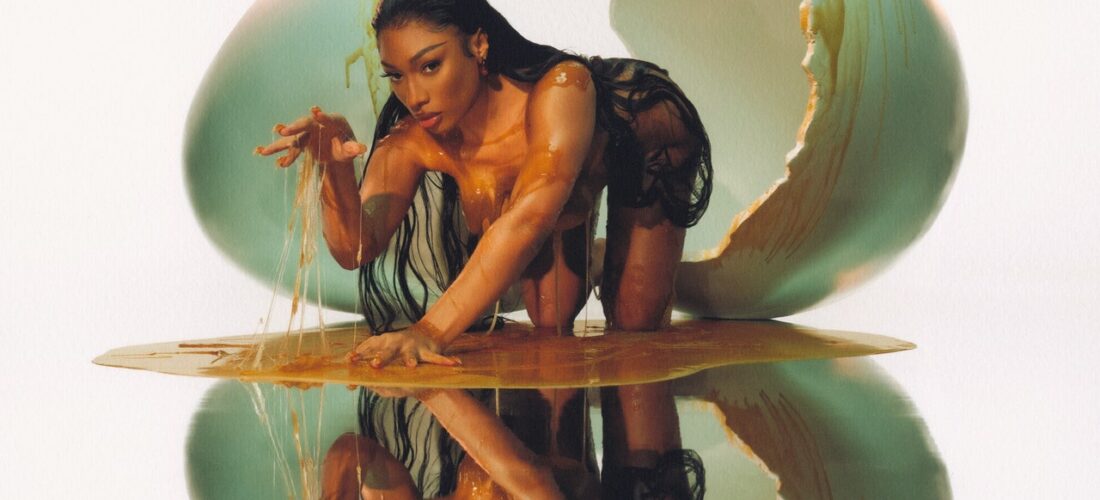It is hard to overstate Megan Thee Stallion’s success: She is not just a rap star, but the kind of supercharged celebrity who appears in commercials and movies and hobnobs with pop stars, all while serving as the new flagbearer of Houston rap heritage. On MEGAN, her newest album, you can feel the pressure on her to keep all those plates spinning—to maintain momentum, to not fuck it up. After Tina Snow, the 2018 EP that cemented Megan as a rapper who’s as raunchy, funny, and charismatic as anyone, all of her full-length projects have, to varying degrees, felt like exercises in becoming everything to everyone. But it’s never been as distracting as it is on MEGAN, an uneven album so preoccupied with giving every single type of fan exactly what they want that it might as well be crowdsourced.
Do you share Megan’s infatuation with anime? Then you will get a thrill out of “Otaku Hot Girl,” which samples a song from Jujutsu Kaisen and features an intro from one of the show’s voice actors. Bankroll Got It’s drum-heavy flip of the soundtrack is uninteresting—though it’s not like he’s working with an anime renowned for its music—and the character references are earnest but unbearably corny. The better song that leans into her fondness for Japanese culture is the multilingual “Mamushi,” which pulls off the theme without flattening her personality. Maybe instead you need new Megan to play at your Pilates class: She’s got you with the feel-good “Worthy,” a Lizzo-coded pop song. Those muscles are put to more effective use on “Spin,” where the silky Victoria Monét hook complements aggressively flirty Megan verses. The fluffy finger-snap beat sounds like it could have been on Love/Hate. (Come to think of it, Megan would have ripped “Shawty Is Da Shit.”)
Then there are the songs for those deeply invested in Megan’s beefs and squabbles. I can picture fans gathering in group chats, dissecting subliminals and clues like they’re in an Agatha Christie book club. After the last three months, I’m all feuded out, so I’m less interested in that game. Still, she lands a few good jokes on “Hiss,” where she calls out the misogynistic dudes in rap who can’t keep her name out of their mouths. (Drake has had a one-sided vendetta toward her for a while now; Megan hits back with some BBL Drizzy theories of her own.) “Rattle,” which has a fast, groovy beat that melodic South Florida rappers would eat up, leaves a sting. “’Cause the niggas don’t beef with the niggas/They scared of each other, but beat on the women,” she attacks; she could be talking about a dozen different rappers, which makes the song feel like a sharp indictment of hip-hop culture in general. As critical as that line is, she still has fun chanting, “Ain’t got no tea on me, this ho’ think she TMZ” while hitting a Harley Quinn cackle in the background.
